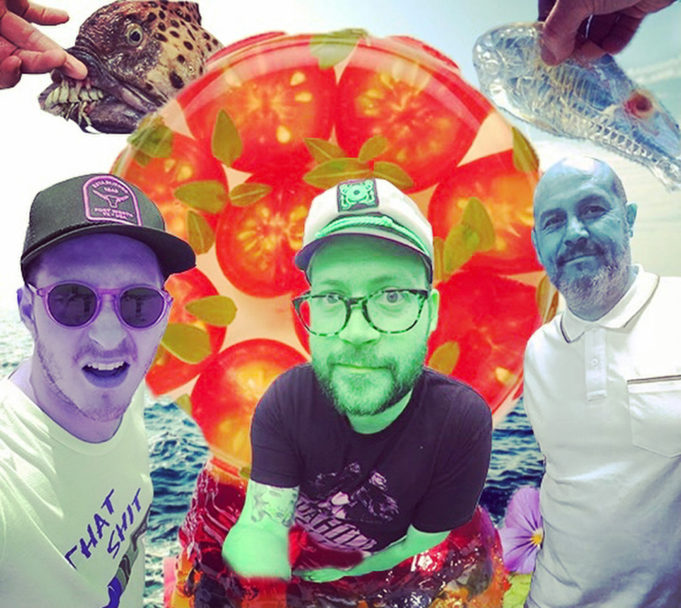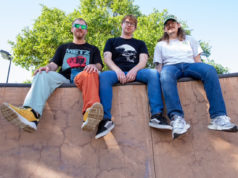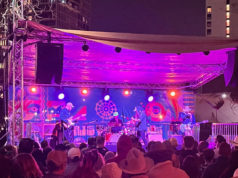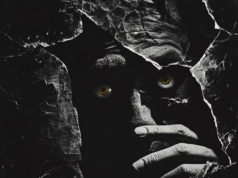Although it’s a certainty that some brownline-framed-glasses-sporting internet-bullying parvenu — armed with an underground music XP dwarfing that of the average mortal local music journalist — would all too eagerly expose the assessment for its sheer contemptible and laughable ignorance, it is mostly accepted that the origins of experimental noise-punk begins with Steve Albini — at least as far as introducing the sound to more than the handful of quaalude-addled onlookers who just happened to be present at some forgotten band’s only show at a loft in Hell’s Kitchen in 1968. In the ’80s with his band Big Black, and later in the ’90s with Shellac, the acerbic, often-controversial musician/producer opened a space where atonal, brittle guitars, ear-piercing feedback, and confusing, syncopated rhythms seemed to provide the perfect sonic accompaniment to primal screaming vocals barking out lyrics riddled with taboos.
Though it’s never been appreciated at even the level of more accessible, yet still severely underground, subgenres like post-rock or black metal, noise-punk’s tendrils still reach out to the current day and are even, perhaps surprisingly, more prevalent now than ever. With the popularity of bands like IDLES and Metz, the clanging, screeching subgenre is even starting to poke its misshapen head up out of the underground a little bit.
Considering bands like Hoaries or the experimental roster of artists on Fort Worth’s Dada Drumming label, the local scene has plenty of its own artists who, intentionally or otherwise, owe at least part of their sound to the totemic Big Black. One such devotee is Britt Robisheaux. While he’s likely best known as a producer/engineer, boasting a wide-ranging discography that stretches from the synth-doom of Pinkish Black on one end to the late pop icon BJ Thomas on the other, he’s been a musician himself throughout his life. One of his current projects is the noise-punk outfit Most Efficient Women. Now as a proper trio, the group followed the ball drop on New Year’s Eve with the new five-song EP Eating the Hawk.
Originally a loose collection of seemingly random contributors, for Eating the Hawk, Most Efficient Women settled into a regular lineup with Robisheaux on guitar and vocals, Uncle Toasty’s Jeffrey Chase Friedman on drums, and Jacob Martinez (Hightower, Cut Throat Finches) on bass.
“I started Most Efficient Women around 2010 as a way to collaborate with musicians I really admired,” Robisheaux said. “The idea was to always keep the lineup open-ended. I just kind of reached out to whoever was inspiring to me at the time that I had access to. I’ve gotten to collaborate with members of SUNN O))), Bellini, Pinkish Black, Bludded Head, and all of my Drug Mountain bandmates. For the new record, I decided to put a solid lineup together to work out some ideas.”
Robisheaux originally hooked up with Friedman and Martinez by chance. The three got together a few years ago to do a one-off show just playing Jesus Lizard songs.
“I just heard that [Friedman] wanted to play some Jesus Lizard covers, and I really wanted to get in on it,” Robisheaux recalled. “The show went well, and we kept getting asked to play others, but I had no interest in being in a cover band. The three of us had so much chemistry that I figured we should just spend our time writing our own songs instead.”
The three went into Robisheaux’s home base of Cloudland Recording Studios and, with a little help from Justin Lemons (Shiny Around the Edges, Dust Congress), who manned the console during Robisheaux’s parts, banged out the five songs over the last few years. Two of the tracks were initially intended as demos for a proper recording session that was to be held with none other than the aforementioned Albini at his famed Electrical Audio studio in Chicago.
“Then COVID happened, and our plans got iced,” Robisheaux said. “We kept writing, but getting back to Chicago at that point didn’t make sense for a few reasons. Hopefully, we can pull funds back together to get up there in 2022.”
Clocking in at a, uh, most efficient 13 minutes and 5 seconds, the five tracks are a flavor-potent aperitif of blistering punk abrasiveness. Much more focused than the expressive, free-jazz approach of MEW’s self-titled 2019 EP, Eating the Hawk offers plenty to chew on — churning distorted guitar, pounding drums, interesting, dissonant, left-field changes, and Robisheaux’s surprisingly hooky vocal theatrics as he muses on “songs all about cults and murders,” though he deflects on being direct about the subject matter.
“I’m a sucker for mysterious shit, so that’s what came out,” he said. “I’ve never been good at writing lyrics, so in a lot of cases, I just shout phrases off of the top of my head while recording band practice. I’ll listen back and try to find meaning, then add more to make it cohesive. I always like when vocalists leave it vague and give the listener space to interpret a song however they choose.”
Producing other people’s music still takes the bulk of Robisheaux’s time (to say nothing of being a family man with little ones at home). Right now, he’s in the process of working on “an experimental dub record with members of Bedhead, Sub Oslo, and Addis Pablo,” but he hopes to keep devoting some time to Most Efficient Women.
“I generally don’t like to let art simmer for too long,” Robisheaux said. “For now, I just really want to get these songs out and move on. I plan to write and record more with [Martinez] and [Friedman]. Those two guys have great taste in music and are really fun to be around. Live performances will continue when the time feels right.”












